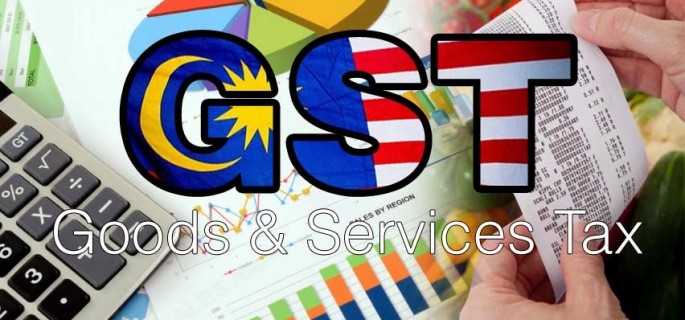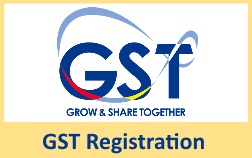How CFO Account & Services Can Simplify Your GST Registration Process in Singapore
How CFO Account & Services Can Simplify Your GST Registration Process in Singapore
Blog Article
Navigating the Complexities of GST Registration: A Comprehensive Overview for Business Owners
Browsing the intricacies of GST enrollment can be a difficult task for several entrepreneur, as it includes a myriad of rules, policies, and processes that must be adhered to. With the ever-evolving landscape of tax obligation laws, making certain conformity and recognizing the ins and outs of GST enrollment is essential for the seamless procedure of any kind of business. From figuring out qualification and collecting the essential paperwork to maximizing procedures for optimal performance, this extensive overview intends to offer company owner with the knowledge and tools required to navigate the intricacies of GST registration successfully.
Eligibility for GST Enrollment
Business proprietors must fulfill specific requirements to identify their qualification for GST enrollment. In general, organizations with an annual turn over surpassing a specific limit are required to sign up for Goods and Provider Tax Obligation (GST)
Additionally, services that are registered under any previous tax obligation routine, such as Barrel or service tax obligation, are generally called for to change to GST registration. By sticking to the essential standards, organizations can efficiently browse the intricacies of GST enrollment and operate legally within the tax obligation structure.
Files Needed for Enrollment
To finish the GST registration process, companies require to collect and submit a thorough collection of records. The key documents needed for GST enrollment usually consist of proof of company enrollment or incorporation such as the Certification of Unification, collaboration deed, or any various other registration certificate. Additionally, companies have to offer identity and address evidence of the marketers or companions, which can be in the form of Aadhar card, PAN ticket, card, or chauffeur's certificate. Financial records such as financial institution declarations, proof of location of company like rental contract or power expense, and accredited signatory information are also crucial for the enrollment process.
Furthermore, details documents connected to the nature of the organization, such as a listing of solutions or products supplied, HSN codes for goods, and SAC codes for solutions, may be needed - Why choose CFO Account & Services for GST registration in Singapore. It is critical for companies to make sure that all files submitted are precise, updated, and in the recommended format to avoid any hold-ups or issues in the GST registration procedure
Process of GST Enrollment
Having actually put together the requisite paperwork, businesses continue to start the GST registration procedure by involving with the on-line website assigned for registration. This online portal is the Goods and Services Tax Obligation Network (GSTN) portal, which works as the key platform for all GST-related tasks in India. Upon accessing the site, services are needed to complete the GST registration kind with exact information concerning their company activities, turn over, and various other appropriate info.
When the type is finished and sent on the portal, the GSTN validates the information given by the service. Following effective confirmation, a GST registration certificate is released to the service entity.
It is essential for companies to guarantee that the info given during the GST enrollment procedure is precise and as much as date to avoid any type of prospective problems or hold-ups in getting the GST registration certification.
Recognizing GST Conformity

Businesses need to be familiar with the different GST compliance requirements based on their turn over, nature of solutions or items, and the states in which they run. It is vital to remain updated on any modifications in GST regulations and policies to protect against any type of non-compliance issues.
Non-compliance with GST laws can lead to significant penalties, fines, and also lawful effects. Businesses need to spend time and sources in enlightening themselves and their personnel on GST conformity. Seeking expert help from tax experts or experts can likewise help in navigating the intricacies of GST conformity and ensuring that services run within the lawful structure.

Tips for Optimizing Service Operations
For enhanced efficiency and productivity in company operations, critical preparation and structured procedures are necessary parts. One suggestion for optimizing organization procedures is to utilize innovation successfully (Why choose CFO Account & Services for GST registration in Singapore). Applying the right software services can automate repetitive tasks, improve precision, and boost Learn More total workflow performance. Furthermore, performing regular efficiency assessments and collecting responses from employees can provide beneficial insights for identifying bottlenecks and locations for enhancement.
One more crucial aspect is prioritizing jobs based on their value and due dates. By creating a clear hierarchy of jobs and setting practical timelines, services can ensure that vital activities are completed on time. Promoting a society of open communication and partnership among team members can lead to increased efficiency and innovation.

Final Thought
In conclusion, browsing the complexities of GST enrollment calls for a clear understanding of qualification standards, necessary records, registration procedures, and conformity needs. By sticking to these standards and maximizing organization operations, local business owner can ensure smooth procedures and compliance with the GST guidelines. It is important for companies to stay informed and updated on GST policies to avoid any kind of fines or legal issues.
The key papers required for GST enrollment commonly consist of proof of organization enrollment or incorporation such as the Certification of Incorporation, collaboration action, or any various other registration certification.Having actually put together the requisite documentation, companies continue to initiate the GST enrollment procedure by involving with the on-line website designated for enrollment. Upon accessing the website, companies are required advice to fill up out the GST registration type with accurate details concerning their company activities, turn over, and other pertinent info.
In order to keep adherence to GST policies and avoid penalties, services should prioritize understanding GST conformity. By sticking to these standards and maximizing organization operations, service owners can ensure smooth operations and conformity with the GST guidelines.
Report this page